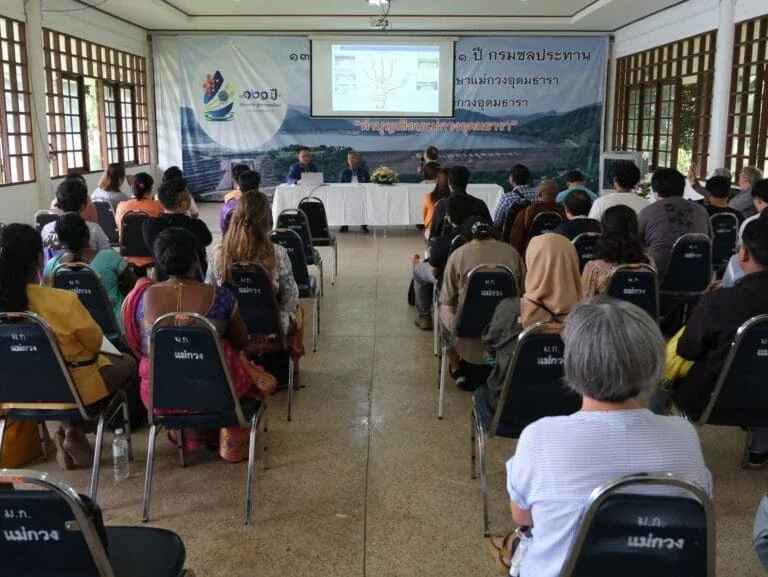Asia’s diverse landscape contains some of the world’s most climate-vulnerable countries, with environmental impacts and natural disasters already disrupting livelihoods, and forcing migration among those who have the means to move. The World Bank has estimated that the Asia-Pacific region could face up to 89 million climate-driven refugees by 2050 if action remains elusive.
The solutions-oriented “Building Bridges” project assembles community leaders from six nations for two large-scale gatherings, with smaller sessions ongoing, led by the East-West Center and supported by The Rockefeller Foundation. Its mission? To increase regional collaboration, elevate critical frontline voices, and examine marginalization as an entry point to building climate resilience. The goal? Informing community-responsive policy, education, and investment.
Featured Stories
A fisherman casting a net on Cambodia’s “beating heart,” the Tonle Sap Lake.
A “Green Monk” urging his Bangladeshi students to recycle.
A Thai woman farmer nurturing her plot near the powerful Mekong River.
These are the vivid voices from frontline communities that emerged during the opening session of “Building Bridges for Community-Centered Climate Security.”
These are lives being reshaped by a shifting climate:
“We can’t let climate change wipe out our natural resources.”
“Buddha told us to live in harmony and balance with our environment.”
“Even in a moment of pressing humanitarian needs, we need to identify climate problems and actions.”
“We are a small village, but we have to share our experiences and keep learning.”
“For others, a forest is just trees. For us, it is life.”
“Cities are squished—physically and mentally. We need farms for food, and healing.”
The “Building Bridges for Community-Centered Climate Security” convening “is a great beginning to our efforts to bridge these communities,” Suzanne Vares-Lum, President of the East-West Center, said at the first gathering in Chiang Mai, Thailand. “We also want to amplify voices of people directly impacted, often by actions and decisions made outside their own communities.”
The project “allows us to leap past borders that disrupt knowledge-sharing,” said Eric Arndt, Director of The Rockefeller Foundation’s Asia Regional Office. “At the first gathering, we saw common themes across different countries in the region, but with localized focuses. We will better be able to incorporate their needs into our own work.”
